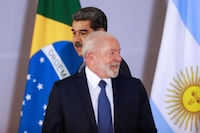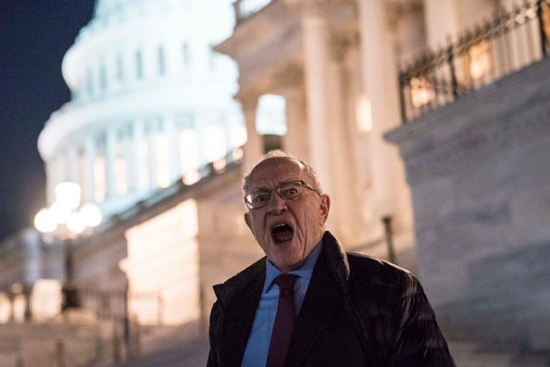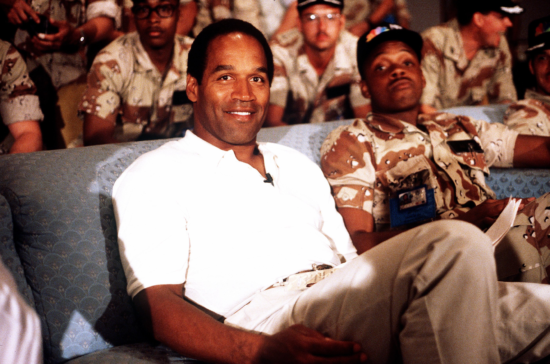But Maduro hung on. The opposition coalition that coalesced behind Guaidó collapsed. And now the socialist strongman is celebrating a stunning diplomatic comeback. In recent months, he’s met with French President Emmanuel Macron, shaken hands with U.S. climate envoy John F. Kerry and reestablished relations with most of the South American nations that just four years ago spurned him.
On Monday, Brazilian President Luiz Inácio Lula da Silva, leader of Latin America’s largest country, not only welcomed Maduro to a regional summit in Brasília but took his side against Washington. Lula dismissed charges against Maduro of human and civil rights abuses as a political “narrative” and condemned U.S. sanctions on his government as “worse than war.”
The meeting brought attention to the U.S. failure to depose Maduro and signaled the political recalibration of Latin America. Many of the conservative leaders who called for Maduro’s ouster are now themselves out of office, defeated by leftists who, with varying degrees of enthusiasm, have either embraced Maduro or at least recognized that he isn’t going anywhere anytime soon.
“This is practically the formalization and the officialization of the return of the authoritarian regime of Nicolás Maduro to the region,” said Daniel Zovatto, Latin America director of the International Institute of Democracy and Electoral Assistance.
In Brazil, many expected Lula to restore relations with Maduro’s government. The two countries share a nearly 1,400-mile border, the Amazon rainforest and a long history of trade, migration and cultural exchange. Lula was close with Hugo Chávez, the founder of Venezuela’s socialist state and Maduro’s predecessor. Other neighbors, including Colombia, Argentina, Chile and Bolivia, have already strengthened ties with Caracas.
But the zeal with which Lula embraced a leader accused of the same authoritarian practices that Lula vowed to fight in Brazil took critics and many allies by surprise.
“A whitewashing of the regime,” said Venezuelan political analyst Gilberto Carrasquero.
Lula, in remarks late Tuesday, doubled down on his assessment of Venezuela and Maduro.
“There’s a narrative in the world that Venezuela doesn’t have democracy,” he said. “That [Maduro] has made mistakes. So I told him it was his responsibility to construct his own narrative, with the true facts.”
Campaigning last year for a return to the presidency, Lula pitched his candidacy as the restoration of Brazilian democracy. He warned that the reelection of former president Jair Bolsonaro, who mourned the collapse of Brazil’s military dictatorship, would plunge the country back into autocratic rule. But in power, and as a leader of the global left, he has defined democracy and authoritarianism a bit more loosely.
In his worldview, Taiwan belongs to China. Ukraine shares blame for the Russian invasion. And now Maduro, who is under indictment in the United States for alleged narcoterrorism, has been unfairly maligned.
“The United Nations has accused Maduro of crimes against humanity, but in Brazil he is received as Lula’s great partner with all of the pomp and honor,” tweeted Sen. Flávio Bolsonaro, the former president’s son. “By greeting Maduro, Lula has alerted the entire world: BRAZIL SUPPORTS THE VENEZUELAN DICTACTORSHIP!”
Even some of Lula’s advisers were taken by surprise by what, in his gusto, he described as a “historic moment.” Some in the presidential palace were left wondering whether Lula’s friendship with Chavez had clouded his view of his protégé and successor.
“When Lula left power in 2011, it was Chavez’s government, a populist with authoritarian overtones but still somewhat hybrid,” said one presidential adviser, who spoke on the condition of anonymity because he wasn’t authorized to speak publicly. “But the Maduro government is a dictatorship, no doubts. … Lula did not mention this once.”
Lula, now in his third term, has never felt more comfortable on the world stage. He is among the most recognizable and best-loved figures on the global left. But that standing, advisers fret, and his confidence in his own instincts, has led him to make more gaffes than at any other time in his career.
“He’s making remarks off the cuff, speaking from a place of security, which then require others to go in and clean up what he said afterward,” said a senior official at Brazil’s Foreign Ministry, who spoke on the condition of anonymity to speak candidly. “That’s what happened yesterday.”
Not all Latin American leaders shared Lula’s assessment of Venezuela and Maduro.
“I was surprised when it was said that what happens in Venezuela is a narrative,” said Uruguayan President Luis Lacalle Pou, one of the region’s last remaining conservative leaders. “The worst thing we can do is put our heads in the sand. Let’s give name to what’s happening and help.”
Lula, who campaigned on a promise of barbecued steaks and cold beer for the working class, is coming under increasing criticism for focusing too much on geopolitics and too little on kitchen table politics. In his six months in office, according to the Brazilian newspaper O Globo, Lula has met with international leaders 30 times but congressional allies just nine. Meanwhile, key initiatives — on the environment, on fiscal reform — have languished.
To date, it’s unclear what benefits, if any, his strident remarks on the international stage have won for Brazil.
“The comments yesterday complicate Brazil’s attempt to project itself as a bridge builder,” said political scientist Oliver Stuenkel of the Getulio Vargas Foundation. “They were profoundly damaging to Brazil’s regional reputation and the way it’s being seen in the West.”
Ana Vanessa Herrero in Caracas contributed to this report.



